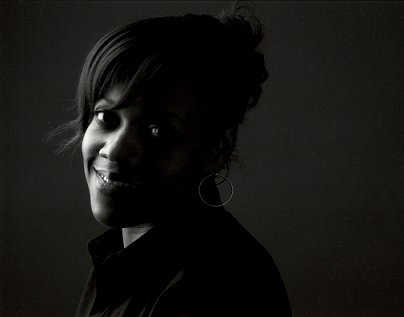Kimberly “Max” Brown, GR’04, has never been afraid to try something new. She was the first person in her family to go to college. Later, she became the second African American in the country to earn a doctorate in Mediterranean archaeology. Then, setting her sights on public service, she started a career as an administrator with the U.S. Department of Veterans Affairs’ National Center for Health Equity Research and Promotion. Now she’s combined her passions for ancient cultures and veterans’ experiences to launch a personal project, Eternal Soldier—an accessible, humanities-based project uniting veterans, scholars, and clinicians to engage other veterans and their caregivers in therapeutic conversations about the experience of war. (Eternal Soldier is not funded by the VA.)
Q: How did Eternal Soldier come about?
I teach a class on ancient Rome at the University of the Arts in Philadelphia, and the daughter of a veteran was one of my students. While reading The Aeneid, she pointed out that the story surrounding one character reminded her of her father. And that led us to talk about her father and his two tours in Iraq and some of the things that he was struggling with. She felt he was a stranger to her in some respects and that reading The Aeneid helped her understand some of the things that were driving his behavior. And that just opened my mind.
Q: How can engaging with ancient cultures help modern veterans?
Any veteran who’s been involved in any war is a part of history. And we want to help them have that sense. For example, you can find many illustrations from ancient art—literally 3,000 years ago—of retrieving dead and wounded comrades from the battlefield. The technological details may be different today, but the intent is the same. To understand that a little bit better would be valuable not only for veterans, but for clinicians who are confronting former soldiers who feel a great deal of guilt over who survived the battle and who didn’t, what happened to their bodies afterwards, and what happened to the wounded.
Q: What have you accomplished so far?
We started in February 2014. We had a workshop, which was the idea of [Penn Arts and Sciences’ James B. Pritchard Professor of Archaeology] Brian Rose, who’s the curator of the Penn Museum’s Mediterranean Section. It was an incredible day, and it has just grown from there. We launched a web site in January, and in the spring we had a speaker give talks at Penn and the Philadelphia VA Medical Center about reading The Iliad and The Odyssey with veterans.
Q: What’s next?
We’re starting off with works that are familiar and have a currency that modern veterans will be able to appreciate. For instance, we’ll look at the Trojan War because a lot of people at least know of it. We don’t need to focus solely on Greece and Rome, though. I’ve been approached by scholars in other specialties—for instance, a person who wants to do something on Beowulf and work on these issues from a medievalist’s perspective. I’ve also been working with an expert in the ancient Near East, and we’re going to do some programming on interesting correspondences between ISIS and the same types of military movements that have been happening in that exact landscape since 2000 B.C.
We’ve also been working on ways to get veterans to visit museums, but to do it in a fashion that responds to what the veteran would like to see instead of what the museum thinks the veteran would like to see—sometimes that’s a little different. We have clinicians who want to start a reading group. We also have plans for veterans to do archaeology at Valley Forge National Historic Park as a chance for them to see how other soldiers lived 240 years ago.
Q: What effect do you see Eternal Soldier having?
When veterans come back to our beautiful society, which hasn’t been touched by war in obvious physical ways since the Civil War, a lot of them feel their experiences are invisible. So Eternal Soldier is about making visible something that has, for the most part, been invisible. But it has a twofold purpose. I recognize that the humanities are under a certain amount of pressure and many people feel they should be studying only those things that improve their economic status. For those of us who don’t see education in that light, Eternal Soldier has become an outlet to disprove that.
Eternal Soldier does not represent the views of the Department of Veteran Affairs or the U.S. government.
Learn more about Max Brown’s work at www.eternalsoldier.org.



